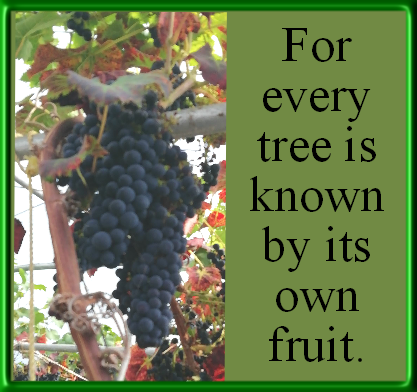27 February 2022
Ecclesiastes 27: 4-7 1 Corinthians 15: 54-58 Luke 6:39-45
Theme: Change yourself before trying to change others
Last Sunday’s gospel from Luke ended with the exhortation to show mercy, to pardon instead of judging and condemning. Today’s gospel passage continues in the same vein, with practical guidance on how to behave as disciples of Jesus. We are warned against our tendency to be judgemental. ‘Why do you observe the splinter in the eye of your brother or sister and never notice the plank in your own…Take the plank out of your own eye first and then you will see clearly enough to take out the splinter that is in your brother’s eye’ (Lk 6:40,42). This warning against arrogance and hasty judgement of others may seem to be just common sense. However, it is far from easy to follow this wise advice in practice. Indeed, common sense is not all that common, as one of my teachers used say. We are all inclined to be judgemental. We notice the faults of others more readily than we see or admit our own faults. Indeed we can be completely blind to failings in ourselves that are all to evident to those who live and work with us.
A story I came across some time ago illustrates how blind we can be to our own faults.
‘In a community of monks there was a young monk who had committed a serious fault which was brought to the attention of his brothers. Immediately the elder monks assembled in community to cast judgement on him. However, according to their rule of life, they could not proceed until the Abbot joined them. So they sent him a message. “Come, the community is waiting for you.” So the Abbot arose, and taking an old basket riddled with holes, he filled it with fine sand. Then he started off carrying the basket on his back. Naturally, as he went along, he left a trail of sand in his wake. The elders came out to meet him and asked him what he meant by this strange behaviour. He replied: “My sins are running out behind me. Everywhere I go I leave a trail of faults after me, only most of the time I don’t see them myself. Now, today, you want me to sit in judgement on my brother.” On hearing this the elders felt ashamed of themselves. So they abandoned the trial and pardoned their brother.’
The ancient Greek philosopher, Socrates, tells us that self-knowledge is the beginning of wisdom. Few of us are truly wise in this respect. We’re so focused on the faults of others – those with whom we work and those for whom we work, the members of our community or family, our leaders – that we have little time or energy for the most fundamental and important exercise of all: truly looking at ourselves and correcting our own faults. In today’s gospel Jesus challenges us to refocus our sharp analytical skills, so quick to diagnose the faults and failings of others, and centre them on ourselves. He is asking us to put our own house in order before trying to reform others. This is surely an appropriate invitation to all of us as we are about to begin the Holy season of Lent.
Lent begins this coming Wednesday. The word ‘Lent’ comes from an old English word which means ‘Springtime’. So it reminds us of spring-cleaning and the new life in nature during the season of Spring. Lent is therefore a graced time, a time to do some spring-cleaning in our lives and enjoy new life as a result, a time to leave the trappings of sin behind us and grow closer to the Lord. In Lent we join Jesus in the desert – at least symbolically – and, with his help, to tackle our demons, our blind spots. We think we know ourselves and those around us. We think we know God and we even try to impose our will on God. Lent invites us to enter into a private desert, even in the midst of the world, and face up to our illusions about God and about ourselves.
During Lent, we use abstinence from meat and acts of penance as metaphors. In a very small way, these practices model our rejection of illusions about what we need, who we are, and who God is. Probably, we will not succeed in ridding ourselves completely of our illusion. That final cleansing will come only when we see God face to face at the final judgement. Then, and only then, will we have no illusions about our sanctity or goodness. All will be laid bare, and there will be no more hypocrisy, lies, or illusions. However, we must begin the journey from illusion to reality, from self-deception to self-knowledge now. And Lent is an appropriate time to re-commit ourselves to that task. I end with a wise prayer I received recently in a WhatsApp message from a friend. It is a prayer we should say and reflect on often, especially during the season of Lent
Lord, grant me the serenity to accept the people I cannot change, the courage to change the one I can, and the wisdom to know that person is ME.
Michael McCabe SMA, February 2022
To listen to an alternative Homily from Fr Tom Casey of the SMA Media Centre, Ndola, Zambia please click on the play button below.
|
|

